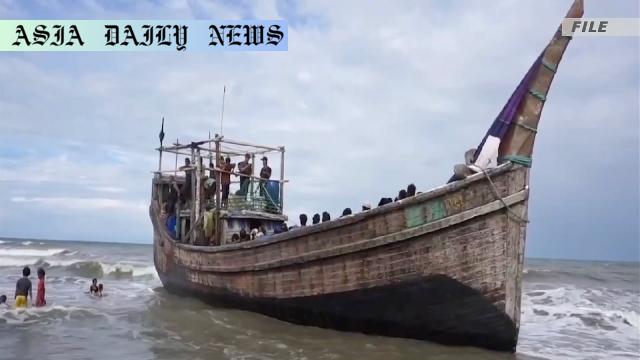Rohingya Crisis: UN refugee agency expresses deep concern after reports reveal over 400 Rohingya deaths at sea this year.
Rohingya refugees continue to flee Myanmar amid harsh realities.
Over 400 refugees recently perished in a devastating sea tragedy.
Funding cuts and limited international aid worsen the crisis.

UNHCR Raises Alarm Over Growing Rohingya Tragedy
The United Nations High Commissioner for Refugees (UNHCR) has issued a dire warning after reports revealed over 400 deaths amongst Rohingya refugees attempting to flee Myanmar by sea. The tragedy, reportedly the deadliest maritime event involving this persecuted group in 2023, has intensified calls for international support. Two boats carrying over 500 people capsized or sank off the coast of Myanmar, leaving only 87 survivors. The stranded individuals faced unimaginable horrors as they sought refuge from persecution, ethnic violence, and lack of basic rights after leaving Myanmar.
The UNHCR highlighted the increasingly dire circumstances faced by the Rohingya, many of whom are confined in overcrowded camps in neighboring Bangladesh. After fleeing Myanmar during 2016 and 2017 military crackdowns, many now face dwindling humanitarian assistance, worsened by funding challenges globally. The intersection of ongoing political violence and inadequate resources has pushed individuals to risk their lives at sea for a chance at survival elsewhere.
Humanitarian Crisis Exacerbated by Funding Shortages
The plight of the Rohingya refugees is compounded by a shortfall in funding, which hampers critical operations to assist those in need. According to the UNHCR, nearly $400 million is required to address the needs of refugees and the host communities that shelter them; however, only 30% of this target has been met. This funding gap highlights a gaping hole in international solidarity and contributes significantly to the desperation of refugees, many of whom feel they have no choice but to face perilous sea journeys for the chance of a better life.
The United Nations points out that international aid plays a vital role in providing shelter, food, healthcare, and security to displaced populations. Furthermore, countries such as Bangladesh, while applauded for their role in hosting large Rohingya communities, often lack the resources to sustain ongoing support without substantial financial and logistical backing. The reduction of aid from key contributors, including the United States, has added to the gravity of the situation.
Urgent Need for Collective Responsibility and Action
Experts and global advocates are calling for a collective, multilateral approach to address the Rohingya crisis effectively. Governments, humanitarian organizations, and international donors must bridge financial gaps to ensure refugees receive the aid they urgently require. Simultaneously, pressure should be applied to Myanmar’s authorities to ensure the human rights of the Rohingya people are upheld, paving the way for a long-term solution to the crisis.
The reality remains that without significant intervention, tragedies like those witnessed off the Myanmar coast will likely persist. More than just financial contributions, nations around the globe must exhibit a shared commitment to policies that promote security and reject further exploitation of already vulnerable populations. As history has demonstrated, inaction brings catastrophic consequences, both in lives lost and long-standing regional instability.
Commentary
Escalating Rohingya Crisis: A Call for Global Responsibility
The recent tragedy involving the loss of over 400 Rohingya refugees at sea is a grim reminder of the precarious situation faced by this persecuted minority. These individuals, forced to flee their homeland in search of safety, often find themselves stuck between violent oppression and an indifferent world. Such crises underline the urgency for international communities to act with greater compassion and accountability.
The Cost of Neglected Voices
While global headlines may momentarily highlight the plight of the Rohingya, true change demands sustained action. The funding shortfall reported by the UN hides the deeper apathy that often accompanies large-scale humanitarian crises. For the Rohingya, this means not just a lack of resources but also diminished hope of a dignified future. The failure to mobilize necessary aid communicates to these vulnerable groups that their survival is not a priority. What’s worse is that ongoing political instability in Myanmar has further exacerbated their suffering without much global intervention to hold perpetrators accountable.
Hope Amid Hardship
While the current outlook for the Rohingya remains bleak, there are glimmers of hope that the international community can build upon. Awareness campaigns, grassroots advocacy, and collective efforts by NGOs and governments can potentially bridge divisions in funding and action. However, time is a critical factor, and unless interventions ramp up swiftly, more lives will be unnecessarily lost. A world that faces ongoing interconnected challenges cannot afford to let vulnerable populations slip through the cracks constantly.


